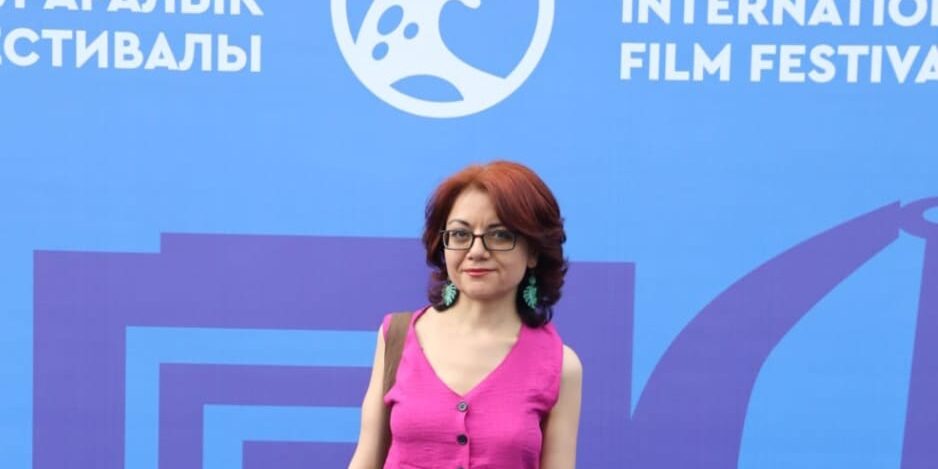Film critic Aygun Aslanli writes on the Bishkek International Film Festival, which she participated in as a representative of Azerbaijan Union of Filmmakers…
Today the closing will be held for II Bishkek International Film Festival. For five days, every day, I watched at least 3-4 feature films. Since we are not familiar with Central Asian filmmaking, especially with its modern era, I decided to watch the “Central Asia” competition as soon as the program was sent. This competition includes art-house and commercial films of various genres from all the republics of the region, including Turkmenistan. But Kyrgyz film critic Sultan Usuvaliyev praised the retrospective section so much that I couldn’t help myself and sacrificed modernity for the classics. I watched Melis Ubukeyev’s “Hard Passage” (1964) and Tolomush Okeyev’s “Bow down to the fire” (1971) and luxuriated in them.
Both films are about the period when the Soviet government began to be established in Kyrgyzstan. The second title of the film “Bow down to the fire” is “Urkuya”, it tells about Urkuya Saliyeva, the first female Kyrgyz Komsomol member and head of the collective farm. One of the first things that come to mind when we hear the words “kolkhoz” and “komsomol” is boundless exaggeration, right? However, “Urkuya” is free from the characteristic of art examples of that period with its documentary-style cinematography, acting, and finale. Actress Tattıbuu Tursunbayeva’s Urkuyas is not one-color, straight Komsomol member we are used to see in movies, but a character who realizes that she is a woman, does not forget, and keeps it in the foreground even while performing her duties. Due to these features, Moscow did not like the film and gave it the lowest category, although the film won several important awards in its time.
Equally important, the Kyrgyz had a very good school of cinematography and editing, and it is possible to see the continuation of this tradition in modern films.
During these days, I had the opportunity to meet valuable people. I especially remember our conversation with Erke Jumakmatova, the head of the Producers’ Guild, because as soon as I learned about Ms. Erke’s field of activity, I asked if there were any tax incentives in the field of cinema in Kyrgyzstan. Erke eje (Kyrgyz refer to women as “eje”) said that there are no concessions related only to cinema. However, there is an Association of Creative Industries. Currently, the Association is working on a special tax regime called “Creative Industries Park”. If the project is adopted, not only filmmakers, but also everyone involved in creative activities will be able to benefit from tax incentives.
One of the moments I observed and envied there was the close cooperation and support between Central Asian region filmmakers; they watch each other’s work, discuss their films, openly express mistakes and correct ones and are not offended by it. Of course, not everything is ideal here, and there are also problems between government departments and creative people. But the fact that filmmakers, no matter young and old, support for each other just for the sake of art reduces the influence of the bureaucracy, at least partially. Oh, I wish…
Aygün Aslanlı

